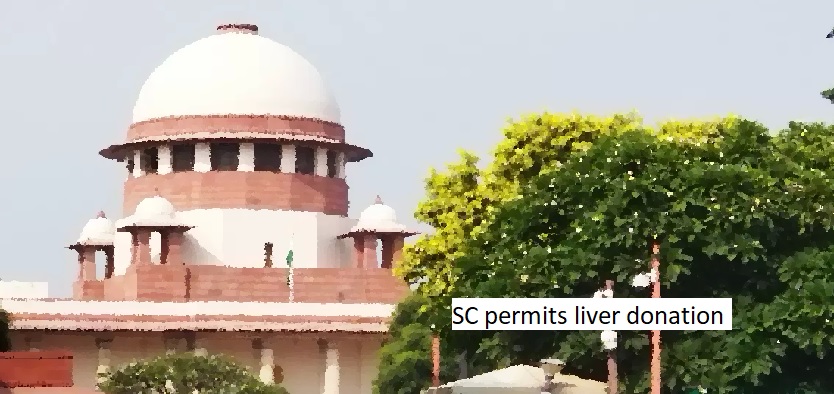


The Supreme Court, in a recent landmark decision, granted permission for a life-saving liver donation by an individual to his 3-year-old cousin, who is battling a severe chronic liver disease. This compassionate intervention by the court carries significant implications for organ transplantation regulations, particularly under the Transplantation of Human Organs and Tissues Act of 1994.
The legal backdrop of this case involves the initial denial of approval by the authorization committee operating under the aforementioned Act. The committee's decision to reject the organ transplant raised critical ethical and humanitarian concerns, prompting the affected parties to seek legal recourse. The apex court's involvement signifies the broader societal and legal dimensions surrounding organ donations and the delicate balance between individual rights and regulatory frameworks.
At the heart of the matter is the 3-year-old child, a cousin to the potential donor, who faces a life-threatening condition necessitating an urgent liver transplant. In the face of this medical crisis, the family turned to the provisions of the Transplantation of Human Organs and Tissues Act, 1994, hoping to secure the necessary approvals for the life-saving procedure.
However, the authorization committee, responsible for evaluating and approving organ transplant requests, initially declined the application. This decision triggered a legal battle that eventually reached the Supreme Court. The apex court's decision to allow the liver donation underscores the judiciary's recognition of the urgent and exceptional circumstances surrounding the case.
Importantly, the Supreme Court clarified that its order in this particular case should not be treated as a precedent for future instances. This cautious approach signals the court's awareness of the unique circumstances surrounding organ transplants and the need for a nuanced evaluation of each case. While the court has demonstrated compassion and flexibility in this specific scenario, it has refrained from setting a blanket precedent that could potentially impact the consistent application of the law in other cases.
The decision raises several questions about the existing regulatory framework for organ transplants in India. The Transplantation of Human Organs and Tissues Act, 1994, was enacted to regulate the removal, storage, and transplantation of human organs and tissues. The authorization committees, established under the Act, play a pivotal role in scrutinizing transplant applications to ensure compliance with legal and ethical standards.
However, the recent case highlights potential challenges within this regulatory system. The denial of the initial application, even in the face of a dire medical situation, underscores the need for a careful examination of the Act's provisions. While regulatory frameworks are essential for maintaining ethical standards and preventing organ trafficking, they must also be flexible enough to accommodate cases that involve compelling humanitarian considerations.
The Supreme Court's decision to override the authorization committee's denial reflects a balancing act between the rigid application of laws and the recognition of exceptional circumstances. In doing so, the court has demonstrated a commitment to upholding the principles of justice and the right to life, especially in situations where the strict application of regulations could lead to unjust outcomes.
In conclusion, the recent Supreme Court decision allowing a man to donate his liver to his 3-year-old cousin serves as a powerful testament to the judiciary's role in navigating complex ethical and legal issues. While affirming the urgency and compassion required in certain medical situations, the court has also maintained a cautious approach by explicitly stating that its decision should not be considered a precedent. This case opens up a broader conversation about the adequacy of existing regulatory frameworks for organ transplants and the delicate balance between adherence to laws and recognition of exceptional circumstances. As medical science advances and societal attitudes evolve, the legal landscape surrounding organ transplants may need to adapt to ensure a just and compassionate approach to these life-and-death situations.
TAGS: Supreme Court Liver donation 3-year-old cousin Chronic liver disease Transplantation of Human Organs and Tissues Act 1994 Authorization committee.